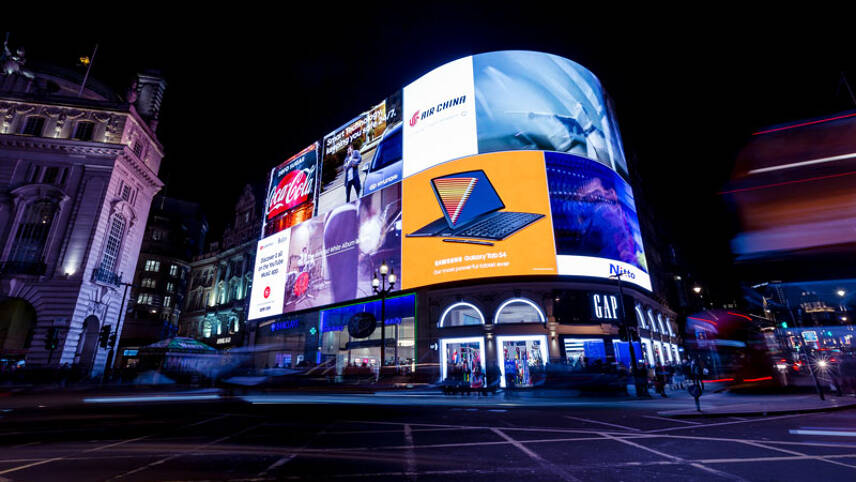Register for free and continue reading
Join our growing army of changemakers and get unlimited access to our premium content

Stock image, out-of-home advertising in London
Conducted by the Chartered Institute of Marketing (CIM), the survey polled 203 marketers to garner their experience delivering campaigns to communicate their clients’ environmental initiatives.
Most said their clients are increasingly looking to carry out this kind of work. 76% said they have worked on at least one sustainability-focussed campaign in the past five years. 45% said they have come under pressure from clients to provide more ‘green’ marketing.
But the survey also uncovered a perceived skills gap; the demand for this kind of marketing is growing faster than the field of related education and training is maturing. Four in ten of the marketers said they would like to attain a qualification relating to sustainability communications.
Without expert knowledge of best practice principles, many marketers are wary of working on sustainability-related briefs. Half (49%) said they have spoken to their company or client about the reputational and legal risks of being accused of greenwashing in the past five years.
Avoiding greenwashing is becoming a legal imperative in many markets. The EU published a draft Green Claims Directive this spring, confirming that all manner of goods and services will be subjected to new proportionate” penalties including fines. A key facet is a major clampdown on products being labelled as ‘carbon-neutral’ or similar, when the company is using carbon offsetting.
In the UK, the ‘Green Claims Code’ provides guidance for complying with laws on consumer protection when making environmental claims, but it does not yet have legal “teeth” of its own. Its architect, the Competition and Markets Authority (CMA), may issue its first fines in the fashion or consumer goods markets in the near future, following detailed investigations.
In the meantime, the UK’s Advertising Standards Agency (ASA) has used the Code in cases where complaints are made. Businesses including Shell, Lufthansa and HSBC have had averts pulled on ASA orders in the past 12 months.
Commenting on the survey findings, CIM’s chief executive Chris Daly urged marketers not to “ignore” environmental crises by greenhushing. His advice, instead, is to upskill and improve understanding.
Daly said: “As marketers, we are all responsible for being proactive in implementing positive changes and embracing environmentally friendly working practices. If the marketing profession is to deliver meaningful and tangible change at scale then, as an industry, we must do more to address the sustainability skills gap and ensure that marketers are equipped with the skills they need to work confidently on environmental campaigns which can encourage others, and drive the positive responsible behavioural changes needed within society.”
Customer concerns
Separately to its survey of marketers, the CIM polled 2,000 members of the general public and 1,193 of its own members to assess the actions shoppers want brands to take when it comes to communicating sustainability.
Most of those surveyed (63%) said they want brands to be more vocal about their sustainability work. This means both highlighting the information more prominently, and providing more detailed and more transparent explainers and data.
This is because the current approach is not fostering trust. Two-thirds of those polled said they think most brands are not being authentic when they talk about sustainability.
Brands that can prove they are taking ambitious and credible action for reasons beyond their own financial gain will have a greater opportunity to attract and retain customers, the research found. This trend is particularly pronounced for Gen Z and Millennials. Six in ten of the 18 to 34-year-olds polled said they are more likely to buy products or services from a brand that advertises their environmental credentials.


Please login or Register to leave a comment.